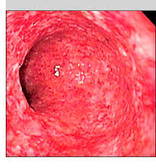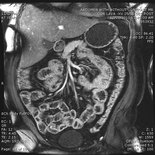Monitoring your treatment
The end result of any treatment is to make you feel healthy and well. This means getting you into remission and keeping you there.
Relying only on how you feel is often not enough to insure that you are truly healthy. That is why your doctor should be ordering certain objective tests to assess how much you have improved on treatment.
These tests can sometimes help in predicting a relapse even before you feel unwell allowing your doctor to make treatment changes in advance.
The end result of any treatment is to make you feel healthy and well. This means getting you into remission and keeping you there.
Relying only on how you feel is often not enough to insure that you are truly healthy. That is why your doctor should be ordering certain objective tests to assess how much you have improved on treatment.
These tests can sometimes help in predicting a relapse even before you feel unwell allowing your doctor to make treatment changes in advance.
"It is always easier to prevent a fire than to put out a fire"
Blood testsYour doctor will do blood tests looking to see if you have had any complications related to your disease such as anemia, or liver inflammation.
C reactive protein (CRP) is a test that can assess the level of inflammation in your body. Not all patients with inflammation have an elevated CRP so it may not be useful in your case. that is why it is important to have this tested early to see if is elevated when you are acutely inflamed. |
Fecal CalprotectinFecal calprotectin is a protein that is released into the intestines in excess when there is any inflammation.
It can be used in 2 ways: 1. to determine if a person's symptoms are caused by inflammation or rather an irritable bowel. 2. To monitor the success of treatment. If the level decreases, it suggests that the level of inflammation is decreasing as well. |
Therapeutic drug monitoring (TDM)
Fortunately, we are able to monitor the blood levels of some of the drugs we use in order to be sure you are on an appropriate dose and modify the dose as needed.
This type of monitoring is available presentlyfor azathioprine (Imuran), infliximab (Remicade) and adalimumab (Humira). Make sure your doctor is using these tools to monitor your treatment.
This type of monitoring is available presentlyfor azathioprine (Imuran), infliximab (Remicade) and adalimumab (Humira). Make sure your doctor is using these tools to monitor your treatment.
|
Despite all the other available tests to assess the level of inflammation, your doctor may still need to perform more direct tests to assess your intestines.
A colonoscopy is the test of choice for the colon but the small intestine can be more challenging to monitor. Enterography is a radiological test to image the small intestine. It can be performed via a CT scan or an MRI. An MRI adds the safety of no radiation. A video capsule endoscopy (VCE) can also be performed of the small intestine that can replace a CT or MR enterography. A VCE is a small camera the size of a pill that one swallows and it takes photos as it passes. these photos are later reviewed. Rarely, the video capsule can get stuck in an area of narrowing in the small intestine which is common in patients with Crohn's disease. To decrease this risk, patients with Crohn's disease will need to do swallow a patency capsule first. This is a capsule the same shape and size of the video capsule. If the patency capsule can pass the small intestine then it is safe to proceed with the VCE. |
|
www.ourdigestivehealth.com
www.GadFriedman.com |




